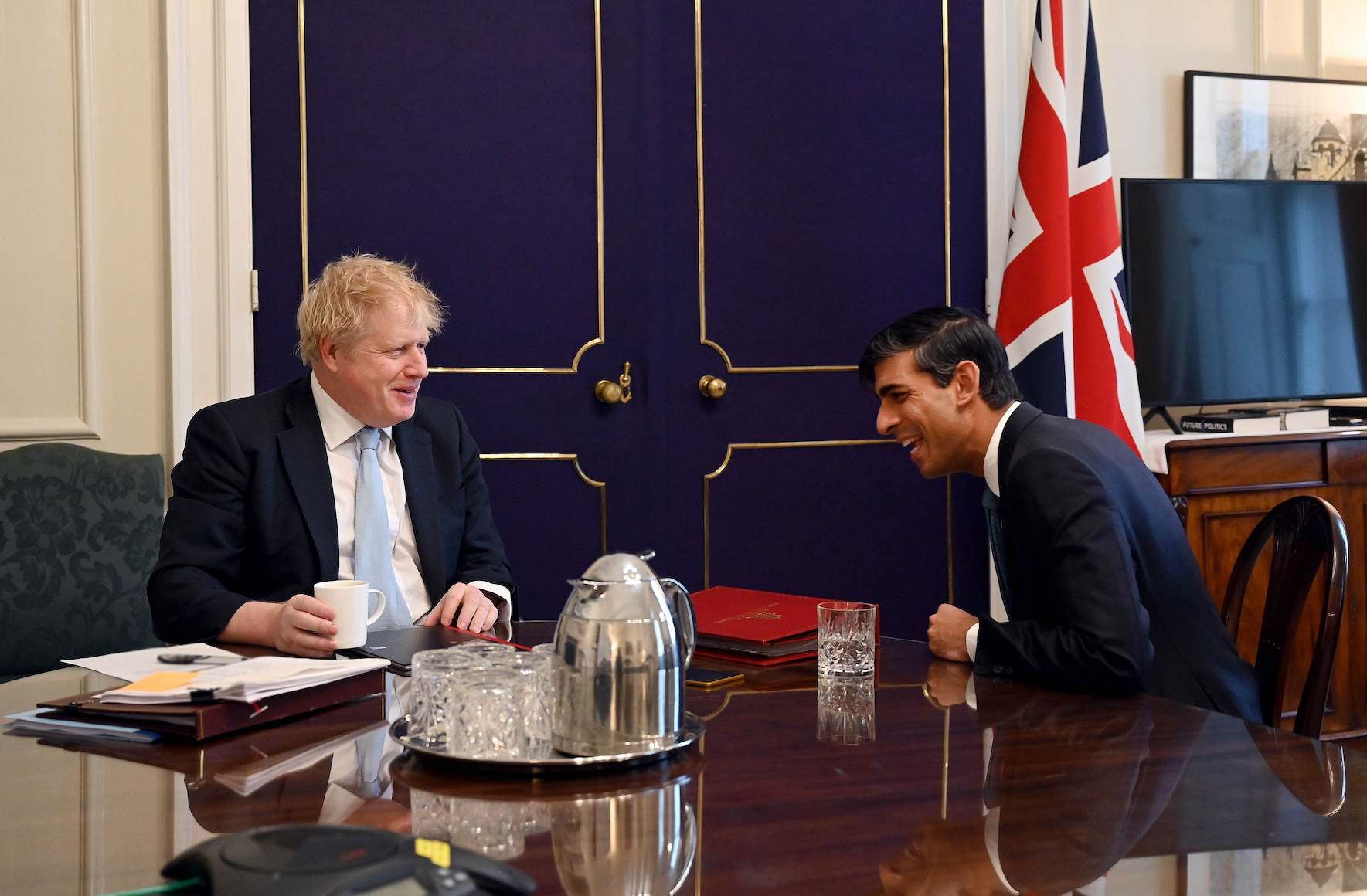MPs will this evening debate, and likely endorse, the findings of the privileges committee report into Boris Johnson.
But among those not expected to vote in favour of the former PM’s would-be 90-day sanction is Rishi Sunak, who has a conveniently timed meeting with his Swedish counterpart around the time of the debate. (Although he is later expected to return to the commons to lead a debate on the UK Tech industry).
Despite Sunak’s scheduling sophistry — as our PM weighs AI and accountability — his absence among “yay”-voting MPs will be especially conspicuous.
Of course, the PM will have privately been hoping to avoid a vote on the committee report, following speculation that Boris Johnson had “called off the dogs” and ordered his allies not to vote against the cross-party group’s findings. It would have seen the report carried by “voice” not by “vote”, with Johnson allies — who might have otherwise hollered “nay” — remaining hushed when prompted by Sir Lindsay Hoyle in the Chair.


But in this instance, Labour MPs may still push the vote by themselves calling “nay” when Sir Lindsay puts the question. The division bells will henceforth ring out, a symbolic death knell — it would seem — sounded on Boris Johnson’s political career.
So as Sunak exchanges pleasantries with the Swedish premier, MPs will lumber themselves into their chosen voting lobby. We understand the “Yays” are expected to win overwhelmingly; moderate Conservative MPs such as Damian Green and Tobias Ellwood have confirmed they are voting for the motion, moved formally by leader of the House Penny Mordaunt.
But it begs the question: why, when given the opportunity to bury Boris once and for all, does Sunak stall, tacitly rebuking the findings of the privileges committee? There has been much chatter about Sunak’s “war of words” with his predecessor-but-one — so would this not be a decisive and final battle, a rare moment of triumph for No 10?
Moreover, as pollster James Johnson of JL Partners has told the Sunday Times: “The ‘red wall’ prefers Rishi Sunak to [Johnson] by more than 20 points. He is less popular with the British public than Philip Schofield and Xi Jinping. If Conservative MPs want any chance of winning their seats, they will need to stop peddling the Boris fantasy and move on”.
The problem for the PM is that his political incentives, among the public and then among his party, are entirely at odds.
The public at large would like to see Sunak pivot against his predecessor-but-one, lance the Boris boil and signal a statement of intent that he is not, in fact, “weak”.
But Johnson retains significant sway over the Conservative parliamentary party, with MPs such as Sir Jake Berry and Sir William Cash, willingly burnishing the PM’s credentials in the media. Better-known loyalists like Jacob Rees-Mogg and Priti Patel equally see no personal political disadvantage in destabilising the Sunak regime. (Just as Johnson implicitly led a “campaign of abuse and intimidation of the [privileges] committee”, the former PM could turn his acrimony on the present occupant of No 10, blamed in the first place for his downfall from Downing Street).
Such is Sunak’s sticky wicket. Lancing the Boris boil might exacerbate the infectious invective with which many MPs see his government. But abstaining makes him appear “weak” and a perennial spectator — destined to remain in the pavilion as Boris allies bat for the former PM without reprimand.
Ultimately, when the prime minister is accosted with a difficult decision, especially those surrounding his problem predecessors, his instinct is inaction. Such prime ministerial passivity — amid attacks that he is weak — will critically undermine his standing among the electorate.
“Sunak the deliverer” is how the PM’s advisers have chosen to characterise their man since he took over in October. They point to the Windsor Framework, Britain’s entry into CPTPP among other policy advancements as examples. But as long as Sunak refuses to lance the Boris boil, the likelihood of such achievements cutting through with the public seem seriously unlikely. Starmer’s attack-line that Sunak is “weak”, on the other hand, will.

